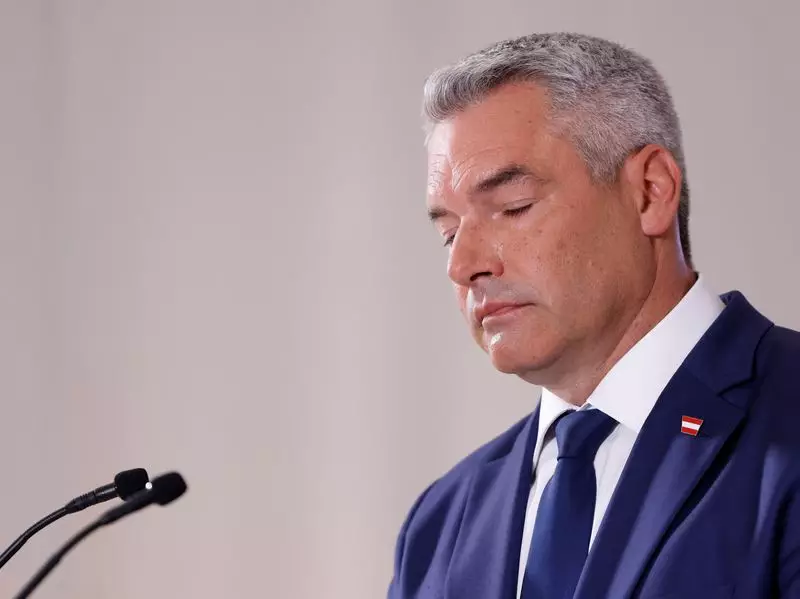Austria is currently facing significant political upheaval following the unexpected resignation of Chancellor Karl Nehammer of the People’s Party (ÖVP). Nehammer’s departure has triggered a flurry of crisis meetings among party leaders, who are scrambling to identify a suitable successor while grappling with the implications of a shifting political landscape. The failure to establish a stable coalition government that excludes the far-right Freedom Party (FPÖ) has left the nation at a political crossroads and raised questions about the future direction of Austrian governance.
Nehammer’s resignation came after protracted negotiations to form a coalition faltered, revealing deep divisions within the ÖVP and the wider political spectrum in Austria. The party’s attempts to align with centrist forces in the wake of the FPÖ’s electoral successes—where it won approximately 29% of the vote—failed dramatically. This was not merely a political miscalculation; it underscores a profound challenge facing traditional conservative parties across Europe as they navigate the rise of populist alternatives that have captured voter sentiment. Nehammer’s refusal to collaborate with the FPÖ—citing concerns about its leadership’s credibility—has left the ÖVP vulnerable to further criticism and electoral losses.
After deliberations lasting over two hours, the crisis meeting revealed that Christian Stocker, the 64-year-old Secretary-General of the ÖVP, is set to assume leadership in an interim capacity. His appointment reflects a need for stability in a climate rife with uncertainty, although it remains to be seen whether he can effectively steer the party through these turbulent waters. In this transitional period, the stakes are high. Stocker must quickly evaluate the implications of aligning or distancing from the FPÖ, particularly amid growing public support for the latter.
President Alexander Van der Bellen now faces a challenging scenario: the potential for a snap election looms large. Governor Markus Wallner has voiced opposition to this course of action, fearing that it would create prolonged instability in governance. A hurried election risks frustrating voters who are already grappling with economic challenges and social concerns, amplifying the current discontent. The FPÖ, exploiting this disarray, continues to project itself as the viable choice, raising its profile further while the traditional parties flounder.
Historically, the ÖVP and FPÖ have been rivals, but the increased overlap in their platforms—especially regarding immigration and security—has complicated the political dynamics. The two parties previously cooperated from 2017 to 2019, but an explosive scandal led to their coalition’s untimely collapse. Given the current political climate, any prospect of re-establishing an alliance will necessitate a reevaluation of party ideologies. The ÖVP’s dilemma stems from fears of being relegated to a subordinate role within a coalition with the FPÖ, which could tarnish its brand further in the eyes of voters.
Public opinion plays a crucial role as the ÖVP navigates these waters. Polls suggest the FPÖ’s support is rising, with estimates showing a lead of over ten percentage points against its rivals. Citizens are increasingly frustrated with the traditional parties’ capabilities to address their concerns, creating fertile ground for the FPÖ’s incendiary rhetoric. As the political scene unfolds, the challenge for the ÖVP is not only to halt its declining support but also to rebuild confidence among the electorate.
The resignation of Chancellor Nehammer and the subsequent leadership shakeup reflect broader trends within Austrian democracy. The crisis is emblematic of the difficulties faced by long-established parties in an era defined by populism and shifting voter allegiances. As Austria stands at this crossroads, the decisions made in the coming weeks will significantly influence not only party politics but the overall stability and direction of the nation. The political landscape may be changing, and how the ÖVP responds could redefine its future—and the future of Austrian governance as a whole.

